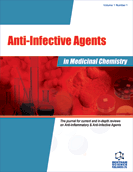Abstract
Anthelmintic resistance in humans has been suspected but remains until now anecdotic compared to the extension of the phenomenon in helminths of livestock or Plasmodium in humans. Human mass drug treatment has been offered against several filarial diseases, schistosomiasis and soil-transmitted nematode infections, thus the appearance of resistance is expected. Up to now the used drugs remain active but a follow up of their efficacy is needed. A poor observed efficacy is not always due to resistance and cases of false resistance are recorded or suspected. In such cases, the quality of the drug may be faulty since many of the proposed drugs on shelf are counterfeit in poor countries; in other countries the unregulated internet pharmacies may also propose counterfeit drugs. The quality drug may also have a poor absorption or metabolisation due to diet or to concomitant treatments of the patients. False resistance observation may arise from poor diagnostic or misdiagnosis and then diagnostic improvement is the main solution to be proposed. The evaluations of resistance in the field are mostly derived from in vivo efficacy assessments based in majority on before and after treatment measurements. The use of control group when feasible and more refined statistical tools should be implemented. When the resistance mechanisms are partly known (several classes of drugs in malaria or benzimidazole resistance of nematodes) molecular tests on parasites would be the best instrument for a follow up of resistance. The last cause of false resistance could also be simply poor compliance of drug use, particularly when the drug exerts unpleasant side effects or when the duration of treatment is long. The assessment of resistance is not always easy in field conditions due to all these confounding effects and false resistance should be an issue to be considered in most cases.
Keywords: False resistance, counterfeit drug, efficacy test, compliance, anthelmintic, malaria, nematode, schistosoma
 22
22





















